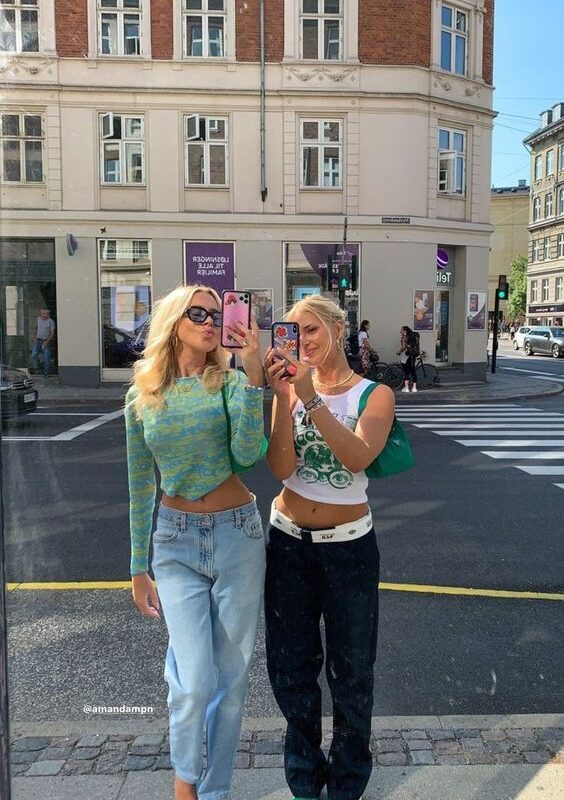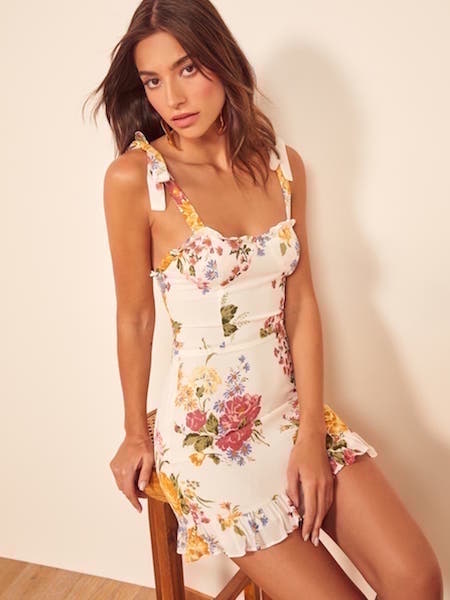By Maria Chammas
I asked SMU students about cancel culture and here’s what they said.
Last November, I bought a pair of Balenciaga sneakers. I had been coveting them for ages, and I couldn’t wait to wear them. Yet they’re still sitting in my closet, nestled in their silver box, unworn. In fact, they’re sitting next to several pairs of Yeezy sneakers – all super comfortable, yet now equally unwearable.
As most people know by now, both Balenciaga and Yeezy were cancelled last fall. Balenciaga’s problems began in November – days after my ill-fated sneaker purchase – based on two ad campaigns that featured both children and references to child sexual abuse and bondage. Kanye West was canceled in October following behavior deemed antisemitic and racist; Adidas, the brand behind Yeezy, cut all ties with him in October (as did Instagram, Twitter and, interestingly, Balenciaga).
I graduated this month and am preparing to pack up my Dallas apartment. Which led me to wonder: Can I wear my Balenciaga and Yeezy sneakers this summer, or should I pack them up – possibly for good? After giving it a lot of thought, I remained unsure, so I decided to ask others about their opinions on cancel culture through an anonymous survey. Do people, particularly SMU students, care about cancel culture? If I wear these cancelled kicks, will I risk being cancelled as well?
A total of 52 people took the survey, 43 of which say they are students at SMU. Out of all the people who took the survey, only one person reported that they had never heard about cancel culture. That tells me that most people know what it is or have been affected by it in some way.
Which doesn’t necessarily mean they buy into it. When asked about their thoughts on cancel culture, 27 respondents said they believe it’s a problem created by social media. 19 respondents believe it’s a way to spread negativity. 12 believe it’s necessary for keeping companies and people accountable. Only 6 respondents think it’s a way to tell between right and wrong.
But what did they think about cancel culture and its relation to luxury fashion?
Respondents were asked to imagine they own something from a recently canceled brand, such as a pair of Yeezys or a Balenciaga bag, and to select what their approach would be. One respondent revealed that they would damage the product, and maybe even burn it, while 19 respondents would set it aside and wait for people to forget about it. Four people said that they would just keep wearing the products because they don’t care about cancel culture, and 13 respondents said they don’t know what they would do. I, myself, don’t know what to do about the canceled products that I own, but it’s interesting to know that most people would just wait a while.
I was curious to know what people would do if one of their favorite brands was canceled and whether or not they would still buy from that brand. 31 respondents said they may continue to buy from that brand, depending on why they were canceled. Six people responded saying they would keep buying from the brand, although they might wait a while before doing so. Two people would keep wearing stuff they previously bought but avoid buying anything new. One person revealed that they definitely would not buy from that brand anymore and stop supporting it completely, while two others said they would keep buying from it because they don’t care about it being canceled.
When asked what their response would be if they saw a stranger wearing something canceled, 10 said they would judge the person without saying anything, 24 wouldn’t care and 8 think they wouldn’t even notice.
Based on the responses from the survey, it seems like although most people take cancel culture into consideration, they don’t allow it to completely alter their shopping or dressing habits. Even though it is a way to keep companies accountable, it may not always align with people’s personal beliefs. It’s comforting to know that SMU students aren’t listening blindly to what others say online and that students are continuing to form their own beliefs and opinions about certain situations.
What does that mean for me and my shoes? The survey results helped me realize that what I choose to do with the clothing in my closet is up to me. I know that I can separate the work from the artist, and I should be allowed to enjoy my shoes without being associated with antisemitism, racism or child exploitation, which I do not condone in any way. I’m going to resume wearing my Yeezys, since I’ve owned those for years. I’m still not sure about my Balenciagas, so maybe I will follow the advice from the survey results and wait a little while longer before taking them out of the box.







